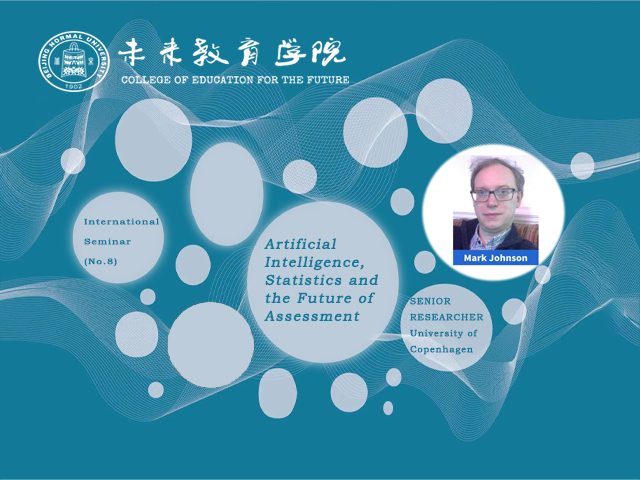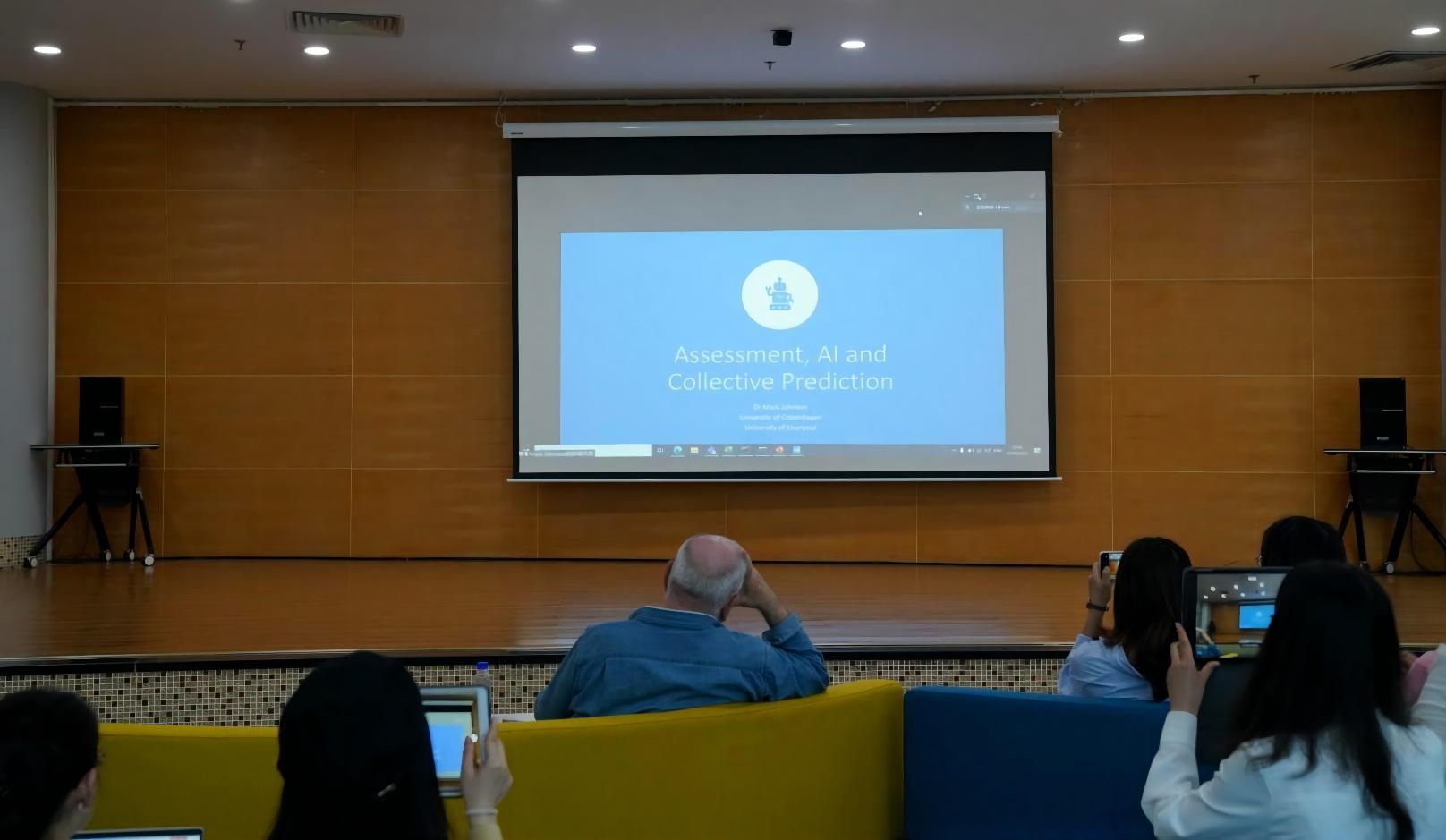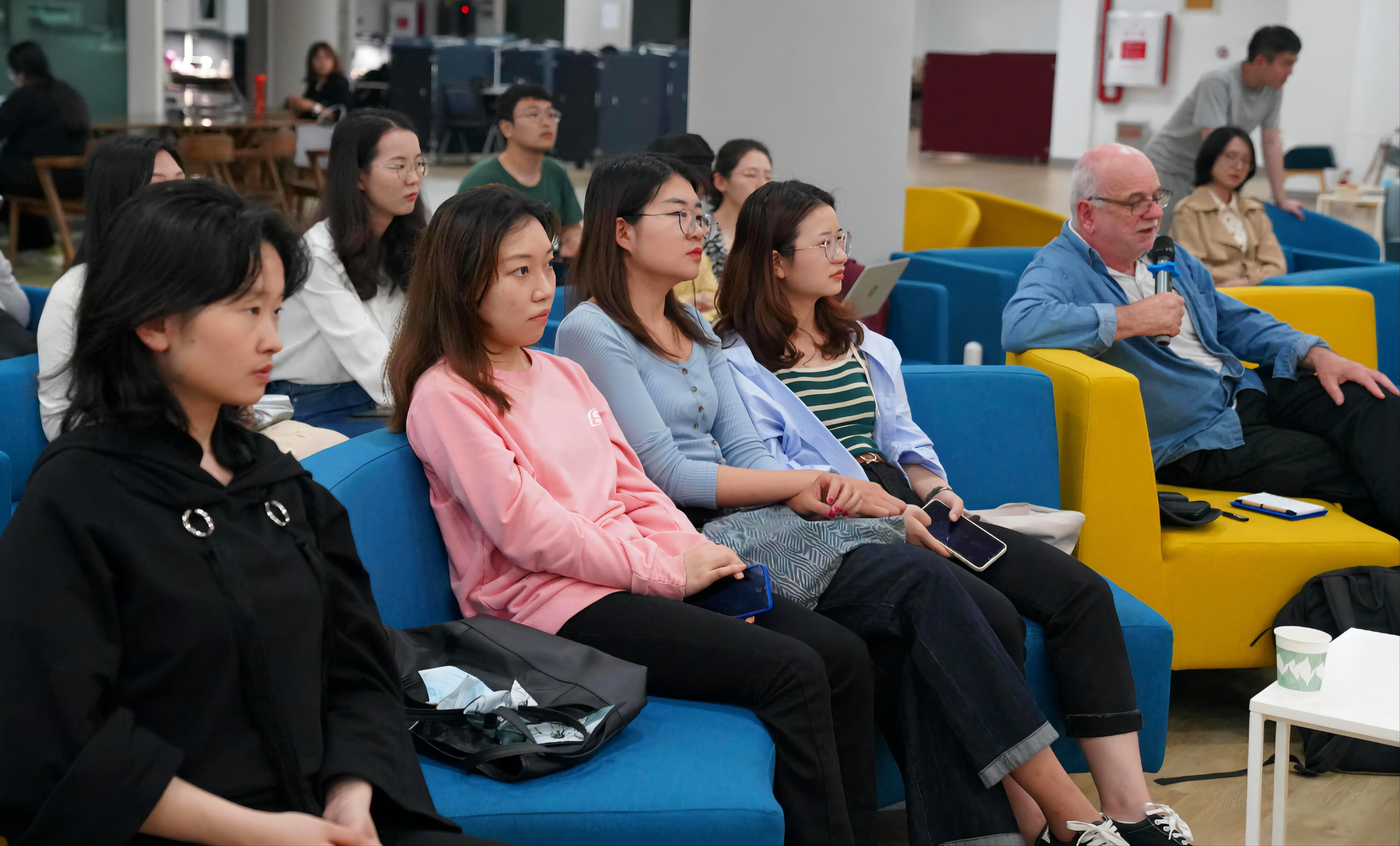On April 21, Education International Seminars(No.8)hosted by the College of Education for the Future was held in A101 Salon Area, Lijiao Building. This salon invited Dr. Mark Johnson of the University of Copenhagen in Denmark to lecture on the application of artificial intelligence technology in the future of assessment and the challenges faced by mankind on the theme of "Artificial Intelligence, Statistics and Future of Assessment". Dr Mark Johnson is a senior researcher in the digitalization of education at the University of Copenhagen, Honorary Reader in the department of Eye and Vision Science at the University of Liverpool and leader/creator of the "Global Scientific Dialogue” course at the Far Eastern Federal University in Vladivostok. The seminar was hosted by Dr. Cui Xin, and the relevant teaching and research staff of the college and more than 50 students participated offline and online.

First, Dr. Mark Johnson introduced the application potential of the combination of statistical processing and AI. He said that at present, Convolutional Neural Networks (CNN), machine learning and image data classification technologies, as well as the deployment of sophisticated Bayesian statistical techniques for processing the data, pioneered by Spiegelhalter and others, have achieved revolutionary breakthroughs in the application of AI. There is plenty of evidence that in some ways machines are performing beyond the standards of experts. The combination of statistical processing and artificial intelligence delivered effective diagnostic solutions in some areas.

Then, Dr. Mark Johnson analyzed the challenges that AI technology will face when applied to education assessment. He said one of the most important challenges lies in establishing human trust in the results presented by a machine. All AI works on the basis of probabilities, and probabilities can be misleading. The effectiveness of AI is typically measured as percentages of “sensitivity” (the percentage risk of misclassifying a "fail" as a "pass”), no amount of increased training of machine learning is likely to eliminate variations of certainty in judgments. One way of doing this is to rethink the nature of the prediction and probability that an AI produces. Rather than think about an AI making a prediction of a particular assessed grade in student work, we could instead think about the probability that a prediction might be correct. This idea of thinking about AI and assessment as about predicting the "probability of a correct prediction" has some potentially revolutionary consequences for education.
At the end of the lecture, Dr. Mark Johnson anaIyzed the areas in which humans and machines excel in the evaluation of future education. He said what is fundamental to this potential future for educational assessment is the question about what humans are good at, and what machines are good at. More importantly, it is about focusing human activity on those things which humans are really good at: collaborative deliberation and the processing of uncertainty in assessment. Meanwhile, there are many assessments that will not require this, which are easy for machines to perform, with a high probability of success. This should not only make assessment more efficient, but also provide automated ways in which students can assess their own performance by getting formative feedback from an AI.

In the Q&A session, teachers and students had in-depth exchanges. Since AI is based on previous data coding programs, student Huang Sisi paid attention to the bias of AI calculation results, and she consulted how to avoid such problems that may occur in AI in the Future of Assessment. Dr. Mark Johnson said that the key is to let AI be applied to find uncertainty, rather than just let AI give simple solutions or conclusions. Teacher Sun Meng did not understand what artificial intelligence means to frontline teachers. Dr. Mark Johnson said that the significance of AI is that it can help teachers make decisions rather than make decisions on behalf of teachers, and for simple work that consumes a lot of time and effort, let AI do it, so that teachers can carry out more creative work.


